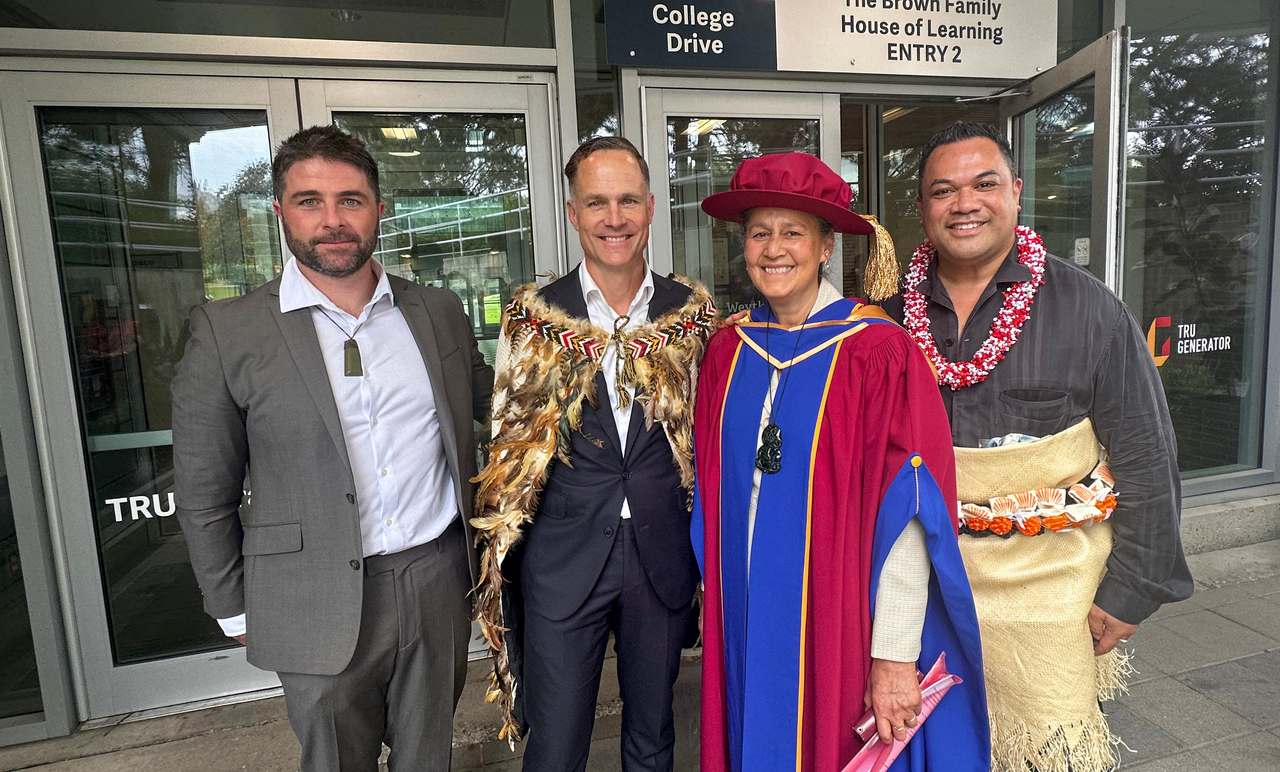News & Insights
National Day for Truth & Reconciliation
ha7lh skwáyel
Today, our British Columbia team honours the National Day for Truth and Reconciliation. We would like to take a moment to acknowledge the significance of this day and share its historical context.
National Day for Truth and Reconciliation (also known as Orange Shirt Day)
Each year, September 30 marks the National Day for Truth and Reconciliation in Canada. The day honours the children who never returned home and Survivors of residential schools, as well as their families and communities. Public commemoration of the tragic and painful history and ongoing impacts of residential schools is a vital component of the reconciliation process.
On September 30, all Canadians observe a public holiday and are encouraged to wear orange to honour the thousands of Survivors of residential schools. Orange Shirt Day is an Indigenous-led grassroots commemorative day intended to raise awareness of the individual, family and community inter-generational impacts of residential schools, and to promote the concept of “Every Child Matters”. The orange shirt is a symbol of the stripping away of culture, freedom and self-esteem experienced by Indigenous children over generations.
Residential School History
For a period of more than 150 years, First Nations, Inuit and Métis Nation children were taken from their families and communities to attend schools which were often located far from their homes. There were 140 federally run residential schools in Canada. More than 150,000 children attended Indian Residential Schools. Many never returned.
The first church-run Indian Residential School was opened in 1831. By the 1880s, the federal government had adopted an official policy of funding residential schools across Canada. The explicit intent was to separate these children from their families and cultures. In 1920, the Indian Act made attendance at Indian Residential Schools compulsory for Treaty-status children between the ages of 7 and 15.
The Truth and Reconciliation Commission of Canada (TRC) concluded that residential schools were “a systematic, government- sponsored attempt to destroy Aboriginal cultures and languages and to assimilate Aboriginal peoples so that they no longer existed as distinct peoples.” The TRC characterized this intent as “cultural genocide.”
The schools were often underfunded and overcrowded. The quality of education was substandard. Children were harshly punished for speaking their own languages. Staff were not held accountable for how they treated the children.
We know that thousands of students suffered physical and sexual abuse at residential schools. All suffered from loneliness and a longing to be home with their families. The schools hurt the children. The schools also hurt their families and their communities. Children were deprived of healthy examples of love and respect. The distinct cultures, traditions, languages, and knowledge systems of First Nations, Inuit and Métis peoples were eroded by forced assimilation.
The damages inflicted by Residential Schools continue to this day. For a great many Survivors, talking about their experiences in residential schools means reliving the traumas they experienced. For years, many told no one about what they had endured.
Residential School History Summary / Timeline
Truth and Reconciliation Commission & the Calls to Action
In 1996, the landmark Royal Commission on Aboriginal Peoples drew attention to the lasting harm that was done by the residential schools. A growing number of Survivors and their descendants came forward to tell their stories and demand action.
Through their courage and persistence, an eventual legal settlement was reached between Survivors, the Assembly of First Nations, Inuit representatives and the defendants, the federal government and the churches responsible for the operation of the school. The settlement included:
A commitment to a public apology. On June 11, 2008 then Prime Minister Stephen Harper issued a formal Statement of Apology on behalf of Canada. The Apology stated that, “There is no place in Canada for the attitudes that inspired the Indian residential schools system to ever again prevail.”
Financial compensation to Residential School Survivors including a lump sum Common Experience Payment, the Independent Assessment Process for the most serious forms of individual abuse, and a Commemoration Fund.
The creation of the Truth and Reconciliation Commission to inform all Canadians about what happened in the Residential Schools by witnessing and documenting the truth of Survivors, families, communities and anyone personally affected by the Schools. The TRC issued an extensive report on the history of residential schools as well as Calls to Action – 94 commitments to child welfare, education, language & culture, health, justice and reconciliation.
In response to Call to Action # 80, a National Day for Truth and Reconciliation was established. It is a public holiday our British Columbia office will observe today.
Learn More
The National Centre for Truth and Reconciliation has become the permanent archive for the statements, documents and other materials the Commission gathered. Its library and collections, as well as its National Student Memorial Register, are the foundation for ongoing learning and research.
This National Day for Truth and Reconciliation, explore the rich and diverse cultures, voices, experiences and stories of the First Nations, Inuit, and Métis peoples. Start your learning journey today.
Indigenous peoples and cultures: Learn about the unique history, languages, cultural practices, and spiritual beliefs of Indigenous peoples in Canada.
Indigenous languages: Learn more about the tools and programs in place to help support the reclamation, revitalization, maintaining and strengthening of Indigenous languages in Canada.
Indigenous history in Canada: Learn more about the contributions of Indigenous peoples from the Royal Proclamation of 1763 through the world wars to today.
Reconciliation: Learn how the Government of Canada is working to advance reconciliation and renew a nation-to-nation relationship with Indigenous peoples, based on recognition of rights, respect, cooperation and partnership.
It’s not just a part of who we are as Survivors – it’s a part of who we are as a nation.
Wa chexw yuu
This article references information from The National Centre for Truth and Reconciliation (NCTR) https://nctr.ca/ and the Government of Canada https://www.canada.ca


